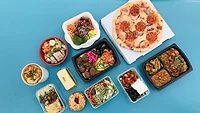Best Food Quality and Safety Practices for Poultry
Fieldale Farms is a privately held, family-owned company whose corporate headquarters is in Baldwin, GA. The company is a private-label poultry products manufacturer and supplier to various foodservice companies.
The fully integrated company operates three hatcheries, two feed mills, two slaughter facilities, one further processing plant, one centralized laboratory, three water treatment facilities and two rendering plants. Fieldale Farms is the first poultry producer to have its own microbiology and chemistry laboratory certified by the U.S. Department of Agriculture (USDA). The centralized laboratory accreditations are ISO 17025 for biological testing, USDA Food Safety and Inspection Service (FSIS) Laboratory Accreditation Program on Food Chemistry and Residue Chemistry and the Agricultural Marketing Service Laboratory Program. In this laboratory, approximately 25,000 tests are performed monthly. The samples range from feeds, water, waste water, raw poultry, further processed, fully cooked, mechanically separated chicken, diagnostic cultures from field, environmental samples such as sponges, swabs, litter, drag swabs, chick box liners, air settling plates from hatchery, contact plates from hatchery environment and blood samples for antibody titers.
As the company contracts with over 1,300 broiler houses, employs around 4,400 personnel and slaughters approximately 3 million chickens per week, the need to control and oversee the safety and quality of the products is paramount.
Best Practices Goals
Fieldale Farms has instituted the following above and beyond best practices into their everyday operations with the following goals:
• Mitigate food safety risks
• Ensure high quality products
• Meet customer specifications
• Exceed customer expectations
• Grow business
Achieving Best Practices
Our management is seriously committed to the hiring of competent quality and food safety personnel and puts these individuals in charge of food safety. Managing risk is part of managing the business.[1] These individuals are therefore responsible for seeing that best practices are both successfully implemented and achieved.
Certification All Fieldale Farms’ processing facilities are USDA-inspected facilities. In addition to meeting the USDA performance standards to ensure safe and wholesome products, the company is committed to continuous improvement to meet their customers’ specifications and exceed their expectations. To do this, the company has all its processing plants Safe Quality Food (SQF) certified. More retailers and foodservice operators are requiring their suppliers and distributors to have certifications to demonstrate their compliance with food safety regulations at all stages of the supply chain in both domestic and global markets. SQF, British Retail Consortium (BRC) or Food Safety System Certification (FSSC) 22000 are all recognized by the Global Food Safety Initiative.[2]
SQF is a comprehensive quality management and food safety certification system for food processors, wholesalers and distributors. The BRC Global Standard for Food Safety is designed for companies supplying retailer-branded food products. BRC is a Hazard Anaylsis and Critical Control Points (HACCP)-based system and requires senior management commitment and continual improvement. FSSC 22000 is a complete food safety certification system for the food manufacturing industry that is based on ISO 22000, PAS 220 and ISO 22003.[3]
Cold-chain Management
Additionally, the company works continuously with its customers to execute an effective cold-chain management program. An effective partnership between supplier and customer is vital for program success. Regardless of the level of integrity of finished products leaving a manufacturing facility, failure to store at the warehouse or transport on trucks within the correct temperature range will compromise both safety and quality especially if the product is refrigerated or frozen.[4] Investment in temperature recorders that monitor the shipping condition of products in transit is becoming a common partnership practice for customers. Currently, Fieldale Farms randomly monitors the shipping temperatures of products in transit to our customers. Our cold-chain management program promotes customer satisfaction by ensuring that products are shipped at the proper temperature; ensuring that monitors are retrieved so that recorded data are reviewed in a timely manner to facilitate prompt action and corrective measures; ensuring effective temperature record keeping and documentation; and mitigating food safety risks. By integrating monitoring and tracking with an emphasis on driving meaningful and measurable process improvements, the right product can be in the right place at the right time under the right conditions. An example of Fieldale Farms’ program/process flow chart can be seen in Figure 1.

Product Evaluation
Another practice implemented for best practices is the evaluation of customer products. Every Friday, Fieldale personnel from upper management, the quality and food safety team, production from all processing plants, sales and marketing and R&D gather and evaluate products produced during the week prior to shipping to customers. This is in addition to the on-line evaluation performed during the actual processing of the product. Products are randomly selected and evaluated for physical and sensory attributes. Proper packaging and labeling are also verified. Product evaluation session schedules are rotated weekly to allow night shift quality control and production personnel to participate in the evaluation sessions. The quality and food safety team believes that when both day and night shift personnel are involved in the evaluation process, opportunities for improvement can be better identified and addressed.
Such an evaluation allows the company to be familiar with customer product specifications and expectations, identify opportunities for improvement and demonstrate team efforts to consistently uphold quality and deliver safe products to customers.
Label Auditing
In the first 6 months of 2011, there were 27 recalls nationwide for undeclared ingredients; 20 were the results of undeclared allergens. In the preceding 2 years combined, FSIS issued recalls for 32 undeclared allergens. Mislabeling for one of the eight main allergens (i.e., wheat, Crustacean shellfish, eggs, fish, peanuts, milk, tree nuts and soybeans) typically results in a Class 1 recall because of the associated public health risk.[5]
Unlike ready-to-eat (RTE) food products, which are safe to consume regardless of the form when purchased by customers, not-ready-to-eat (NRTE) products require cooking by consumers for safety. While most RTE meat and poultry products are covered by specific lethality performance standards in FSIS regulations, NRTE products are not, since they contain at least one ingredient for which the elimination of vegetative pathogens such as Listeria monocytogenes and Salmonella cannot be assured.[6] It is critically important that products are labeled correctly to prevent foodborne illness outbreaks.
Labels must be checked to ensure accuracy of the following:
• Calculation of all marination and ingredients (must add up to 100%)
• Ingredient declaration including allergens
• Nutrition labels
• Cooking and handling instructions
• All product claims, that is, gluten free, antibiotic free, all vegetarian diet, etc. (process controls are required to verify accuracy of claims).
Shelf Life Studies
Conducting shelf life studies helps validate the length of time that a product will remain safe and wholesome for consumption. It must have “acceptable quality” level or have no change in desired sensory characteristics over the entire life of a product. Storage of products at proper temperatures at all times is a key in extending product shelf life. Using a third-party laboratory to perform shelf life studies helps determine the proper storage temperature and shelf life of poultry products. Customers expect suppliers to provide accurate information when it comes to shelf life.
Education and Training
Quality and food safety, production and maintenance personnel are encouraged to attend training sessions, workshops and conferences on food safety, that is, HACCP, SQF, Labeling, etc. Key personnel of the quality and food safety team must attend organizations’ trade conferences and workshops, participate in committees and network with other food safety colleagues and leaders in the field to deepen their knowledge of new technologies, emerging trends, issues, solutions and evolving public concerns. This helps improve corporate knowledge and decision-making effectiveness.1
Visiting Customer Establishments
Quality and food safety personnel must regularly visit their customers’ establishments as patrons to better understand the experience of consumers. Key quality assurance team members and the sales team must regularly visit their customer facilities to assist with efforts to identify opportunities for improvement. Teamwork and strong partnerships with customers are essential to business success.
Serious Commitment by Management to Food Safety and Quality is Essential for Business Growth and Success
The food supply and service industry currently is faced with several important challenges to business growth and success. The media recently has focused heavy coverage on foodborne illness outbreaks and allergen-related product recalls, and this increased attention underscores the need for effective and proactive food safety and quality control practices to protect the viability of our business enterprises. Furthermore, with the current economic situation, suppliers and processors must continue to identify opportunities and implement best practices that are above and beyond their customers’ specifications and expectations in order to continue growing as businesses. The ability to effectively meet these evolving industry demands requires that a food safety consciousness be part of the corporate culture all the way through from the upper management to the production level. Otherwise, food establishments that cut corners on food safety risk devastating economic consequences and irreparable harm to their businesses.
Veny Gapud, M.S. is the corporate food safety and quality assurance officer for Fieldale Farms Corporation. She was the recipient of the 2011 International Association for Food Protection (IAFP) Harold Barnum Industry Award that recognized her outstanding service to IAFP, the public and the food industry. She is also a current member of the USDA FSIS National Advisory Committee on Meat and Poultry Inspection (NACMPI), former chairperson of the Retail Food Safety and Quality PDG of IAFP, a former President of the Georgia Association for Food Protection and a current member of the Food Safety Magazine Editorial Advisory Board. Gapud can be reached at venygapud@fieldale.com.
References
1. Marler, W. 2007. Food Safety & the CEO- Keys to Bottom Line Success. Food Safety Magazine. October/November.
2. Gapud, V. 2009/2010. Food Safety Trends in Retail and Foodservice. Food Safety Magazine. December/January.
3. www.aibonline.org/auditservices/GFSI_CertSchemes.html.
4. Gapud, V. 2006. Driving Best Practices in Distribution. Food Safety Magazine. August/September.
5. Flynn, D. 2011. Allergens Have Caused Most Meat Recalls This Year. Food Safety News. July 8.
6. The Association of Food, Beverage and Consumer Product Companies (GMA). 2008. Guidelines for Validation of Consumer Cooking Instructions for Not-Ready-To-Eat (NRTE) Products.
Looking for quick answers on food safety topics?
Try Ask FSM, our new smart AI search tool.
Ask FSM →








.webp?t=1721343192)